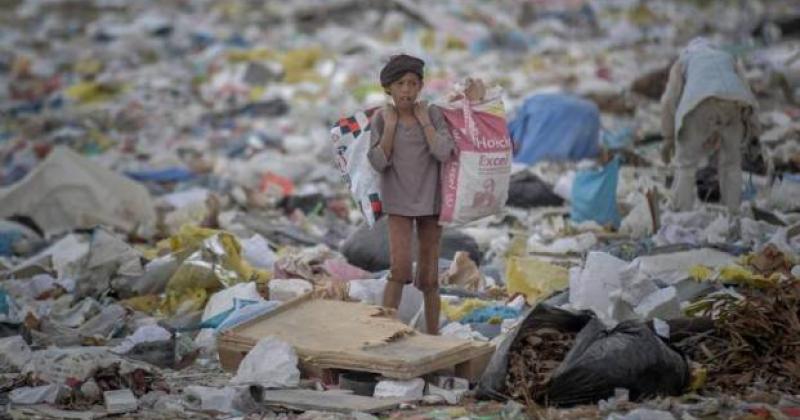Pope Francis looks ahead to the meeting on climate change in Paris. Dialogue needs to be stepped up in order to create an “authentic alliance” that can bring about “significant global environmental agreements”. The CEO of the Italian postal service gave him an electric bicycle as a gift
The Pope has sent out an appeal ahead of the meeting on climate change in Paris, calling for an “authentic alliance” between key global players. An alliance capable of bring about “significant global environmental agreements” “make every effort to ensure that the poorest, among countries and human beings, can make their voices heard”.
Today, Jorge Mario Bergoglio - who dedicated his recent encyclical “Laudato Si’” to the theme of ecology - received participants of the international meeting on environmental justice and climate change organised by the Foundation for Sustainable Development, in an audience which was held in the Clementine Hall inside the Apostolic Palace. The meeting was sponsored by the Pontifical Council for Justice and Peace and the Pontifical Council for Health Care Workers. In an interview with Vatican Radio and Italian newspaper La Stampa, in view of the Pope’s visit to the UN on 25 September, the Secretary General of the UN, Ban Ki-moon, said today: “I am concerned about the pace of this negotiation (on climate change, Ed.). It is moving so slowly.”
“The climate, the Pope said, “is a common good that is seriously threatened today, as is demonstrated by phenomena such as climate change, global warming and the rise in extreme weather events. These issues have attracted considerable attention in the media and in public opinion and there are heated scientific and political debates around them. A widespread albeit not unanimous consensus is emerging. Why and how should the situation be dealt with? We cannot forget the serious social implications of climate change: it is the poorest who bear the brunt of its effects!”
“How can we exercise our responsibility, our solidarity, our dignity as people and citizens of the world?” the Pope asked. “Each individual is called to respond in their own personal way, on the basis of their role in the family, in the world of work, in the economy world and in the research world, in civil society and in the institutions. Not boasting impossible cures: nobody has them! But instead by contributing what they have learnt to dialogue, accepting that their contribution may be questioned: everyone is called to contribute towards achieving a result that cannot but be the fruit of a common effort. The great enemy here is hypocrisy,” Francis said speaking off the cuff. Your meeting rightfully represents an example of how this dialogue is practiced. In the “Laudato Si’” encyclical, I suggested that dialogue is the only way to deal with the problems of our world and to seek truly efficient solutions. I consider the fact that there are top representatives of different “worlds” participating in this meeting, a very important and providential sign. The “worlds” of religion and politics, economic activity and scientific research in a variety of sectors, international organisations and those engaged in the fight against poverty. In order for this dialogue to bear fruits, it needs to be inspired by a vision that is as transparent as it is wide-reaching and to adopt an integral but above all participatory approach, including all parties concerned, even those who are often left on the sidelines of institutional processes.”
“I urgently invite everyone to make every effort to ensure that the poorest, among countries and human beings, can make their voices heard at the discussion tables as we try to resolve this unique and complex socio-environmental crisis. This I also a duty of environmental justice,” Francis underlined. “Faced with the climate change emergency and in view of the crucial upcoming meetings – the approval of sustainable development goals by the UN at the end of September and above all the COP 21 forum on climate change in Paris at the start of December – I would like to urge for this dialogue to become an “authentic alliance” that can bring about significant global environmental agreements. You can count on my personal support and on the support of the Church as a whole along the way, starting with that essential form of support that is prayer. As of now, I offer our common effort to the Lord and I ask him to bless it so that humanity is finally able to listen to the earth’s cry, this earth which is our mother and sister, as well as the cry of the poor among the earth’s inhabitants and to care for it. Today, our mother earth is among the excluded who cry up to heaven. In this way, creation will increasingly resemble the common home that the one and only Father imagined as a gift for the universal family of his creations.”
At the start of today’s audience, Francesco Caio, the CEO of the Italian postal service, presented the Pope with an electric bicycle, “a sign of how the postman’s job developed towards sustainability”, he said, underlining the commitment of the Italian postal service to the green economy and sustainable and above all inclusive development. Edo Ronchi, President of Italy’s Sustainable Development Foundation, expressed his “fear” that this climate conference will lead to inadequate conclusion just like the previous ones. He invited the Pope to send out “a message at the conference in Paris, in order to ensure a positive outcome”. Today’s audience was attended amongst others by two Italian government ministers - Maurizio Martina, who is in charge of Agricultural, Food and Forestry Policies and Gian Luca Galletti, who is in charge of the Environment and Protection of Land and Sea - Gianni Letta, US economist Jeffrey Sachs and Mgr. Marcelo Sánchez Sorondo, Chancellor of the Pontifical Academy of Sciences.
